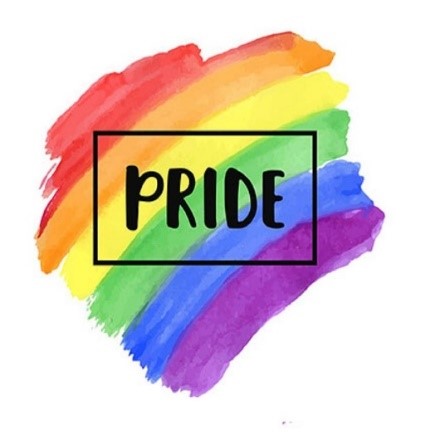
As we celebrate Pride month, UCOH presents a 4-week blog post series by author and UCOH Rainbow Ambassador Charles Davis. Over the next four weeks, Charles presents the evolution of attitudes regarding LGBTQIA+ individuals and early attempts to achieve equality. Read on…
The Stonewall Inn and the Beginning of the Modern Gay Rights Movement
By Charles Davis, UCOH Rainbow Ambassador
Well, it’s June, Memorial Day is over, the kids are out of school and summer has officially begun! Along with swimsuits and suntan lotion, you may begin to notice an increase in colorful rainbow flags around town.

This isn’t just to celebrate summer; June is Pride Month. It’s the time LGBTQIA+ people across the nation honor the impact the Stonewall Inn, a gay bar in New York City, and the events of June 28, 1969 have had on our equality movement. Although Austin does not celebrate Pride until August with a huge parade and festival down on Town Lake, the “party” begins now. Why celebrate just one month when you have all summer, right?
For many LGBTQIA+ people, Pride honors something that has been a reality for most of their life – greater job security, respect, the ability to adopt and raise children, marriage equality – but there are portions of the community that do not share in these “rights”. These people still struggle to achieve full acceptance in our society. Currently, there is a concerted effort in some states to further marginalize these people. This is not a struggle just for a small portion of the LGBTQIA+ community; it is a burden shared by the community as a whole, along with our allies.
People who identify outside prescribed sexual and gender norms have existed since the beginning of modern civilization and most likely far beyond. For most of that time, they were accepted and even held honored positions in some cultures as a Nation’s shaman or spiritual leader. However, some modern spiritual disciplines have spoken negatively about LGBTQIA+ people, citing biblical passages to support their viewpoint. This has resulted in some people rejecting and shunning these individuals. More recent studies of biblical scriptures and Hebrew culture at the time consider this to be a misinterpretation (For more information about this, read “What the Bible Really Says About Homosexuality,” Daniel A. Helminiak, Ph.D.).
“The Society for Human Rights” was established in Chicago in 1924 by Henry Gerber. This is considered the first organization in America to support equality for LGBTQIA+ people. It distributed the first American publication specifically written for people who were then known as homosexuals, although the term has since fallen out of favor with the community (https://nytimes.com/2014/03/23/fashion/gays-lesbians-the-term-homosexual.html ). Soon after its founding, however, the society was forced to disband due to political pressure.

Gender nonconforming individuals have been forced to live a “shadow” life in our society. We had to meet secretly in private clubs and could not associate freely with each other in society. Those that could “pass” were able to enjoy a normal life, but to do so, they had to assume “marriages of convenience” with people of the opposite sex (gender nonconforming or cis-gendered) to avoid being shunned by society once they reached maturity. Those that were bisexual did what they were expected to do – bury one side of themselves and marry and have children. However, they found their families destroyed later in life when they simply could not deny their true nature.
Even as late as 1950, homosexuality was deemed to be a mental illness by the American Psychiatric Association. This was not a universally held position amongst psychiatrists, however, even at that time. In 1956, Dr. Evelyn Hooker published “The Adjustment of the Male Overt Homosexual” concluding that homosexuality was not a clinical entity and that there was really very little difference between heterosexuals and homosexuals psychologically. However, it took until 1973 for the American Psychiatric Association to officially remove homosexuality from their official list of mental illnesses. Until 1969, LGBTQIA+ people in America still lost families, jobs, even their lives for the “sin” of being different. It was in the early hours of June 28th, in a small gay bar in New York City called the Stonewall Inn, that everything began to change.


As result of a routine raid of the establishment by police, men in wigs and high heels, women in masculine attire, and other gender-nonconforming people pushed back, throwing bottles and anything else they could find. For the first time, these people stood up and refused to meekly endure the prejudice and mistreatment they had experienced their entire adult lives. For a short while they even had police barricaded in the Stonewall Inn, the bar they had just raided, as gays angrily marched through the streets shouting their defiance of the injustice they had endured for so long.


Over the next four weeks, we will consider in detail the evolution of attitudes regarding LGBTQIA+ individuals and early attempts to achieve equality, leading up to the Stonewall riot itself. Finally, we will consider what has happened since Stonewall to bring us to where we are now, along with an honest examination of how far we still must go.
[Note on language: Language is fluid and ever evolving. Terminology and usages change from era to era, culture to culture, and even person to person. While we have endeavored to use terminology that is respectful to the individuals and communities mentioned in this series, some of the language may be considered offensive or problematic today or in the future. When trying to decide what language to use, it is important to follow the lead of individuals and communities, listening to current best practices. GLAAD’s Media Reference Guide (https://www.glaad.org/reference/terms ) is a great resource for this. We welcome feedback, comments, questions, and constructive criticism, so if you see anything that could use updating, please let the author know and we will take your concerns into consideration. Contact: Charles Davis, cdavis114@icloud.com]